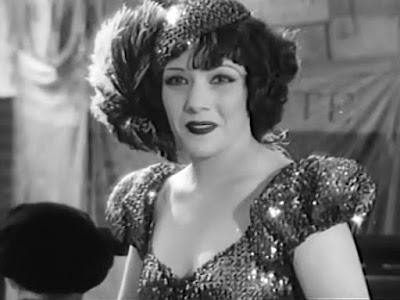 |
| Judy Garland and James Mason |
A STAR IS BORN (1954). Director: George Cukor.
Esther Blodgett (Judy Garland) ignites the interest of movie star Norman Maine (James Mason) when he drunkenly stumbles upon the stage where she is performing a number for a Hollywood "Night of Stars" benefit. Esther is by no means a star, but rather a vocalist with a popular band. Norman is so impressed by Esther that he arranges a screen test for her and is instrumental in her taking over the lead role of a new musical production. Eventually Esther -- rechristened "Vicki Lester" by the studio -- and Norman marry, but as her career hits the heights and she does become a certified star, Norman's heavy drinking and bad behavior pay a toll ...
 |
| The Man That Got Away |
I've seen this version of the venerable story more than once in the past few years and my opinion of it waxes and wanes. I have now come to the conclusion that it is a very good and very entertaining classic motion picture, and the best version ever of this bit of Hollywood folklore. In previous years I may have been reacting negatively to the obsessive, near-hysterical reaction among some Garland fans who may have ruined many a screening of the picture. I first saw the film on television decades ago, chopped up by commercial interruptions and missing scenes that had even made the final theatrical cut. Color and cinemascope were lost. Now the film can be seen in its original three hour length in widescreen technicolor and stereophonic sound -- boy what a difference!
 |
| Born in a Trunk |
There are times when you do get the impression that this is strictly A Judy Garland Extravaganza with the woman taking centerstage in one musical number after another and to hell with the story. But in the final quarter the film does get back to the central romantic relationship between Esther and Norman, and as for all of the musical numbers -- well,
A Star is Born is a musical, after all, and the production numbers, featuring a luminescent and ultra-talented Garland at the top of her form, are extremely well-done and give the film its vitality. The long
Born in a Trunk sequence is also quite stylish and memorable.
 |
| Norman Maine overhears that he's washed up forever |
Garland gives a terrific performance, and those who claim the Oscar was stolen from her may be correct. This time around I didn't find her overly mannered or too neurotic but pretty much on-target in her portrayal. Let's not forget James Mason, who is near-superb as the charming, dissipated Norman, who can be a pretty mean drunk when he wants to be. There is a lot we don't learn about Norman, unfortunately, which might have made him a bit more sympathetic, although when we see Mason as Maine in his bed listening to the studio boss tell Esther how washed up her husband is, you can't help but feel a stab of pity.
 |
| Garland with Charles Bickford |
Charles Bickford makes his mark as the studio boss, and he has two wonderful scenes with Mason in the Maine home and at the sanitorium where Norman is hopefully drying out. Bickford also figures in a especially well-written dressing room sequence when Esther tells of how helpless she feels trying to succor Norman and how there are times when she actually hates him due to his failure to control his drinking and all of his broken promises. Jack Carson also scores as the long-suffering publicity man who has had to put up with Norman's drunken antics for too long a time. Tommy Noonan is fine as Esther's friend, the band leader Danny, who gives her a needed pep talk, and there are bits from Irving Bacon as Norman's butler, Percy Helton as a drunk, Arthur Space as a court clerk, Frank Ferguson as a judge, Tristram Coffin as an assistant director, Grady Sutton as a reporter, and Richard Webb as a winner at the Oscar ceremony, and many, many other familiar names who show up only briefly.
 |
| Get That Long Face Lost |
In addition to
Born in a Trunk, which includes a rendition of
Swanee, the other song numbers include
It's a New World, What am I here for? and
Get That Long Face Lost which features two cute black children. Arguably the best number is
The Man That Got Away, superbly delivered by Garland. One might wonder why she smiles during this torchiest of torch songs, but it may reflect a sheer joy in singing, and in this excellent Harold Arlen-Ira Gershwin song. (Arlen and Gershwin did the other numbers, aside from
Born in a Trunk and
Swanee). I confess that I've always found the number Garland does for Norman in her living room to be a little tiresome, but you can't win 'em all. In any case, Sam Leavitt's cinematography is first-class, as is Cukor's direction.
 |
| Norman accidentally smacks Esther at the Oscar ceremony |
Some things you just have to take with a grain of salt. Why would Norman Maine insist that Esther have a screen test when he's never actually seen her
act, just sing? Sure her interpretive singing skills are impressive, but that doesn't mean she can act. Still, this
is Hollywood. Based on the initial reviews and audience reaction, everyone expected
A Star is Born to be a tremendous hit, but the studio cut forty minutes out of it so there could be more showings. I'm not certain if that really would have hurt the box office, but in any case the movie lost money and Garland only made two more pictures. Her big comeback was both a triumph and a failure.
Verdict: A hell of a lot of work went into this picture and it shows! ***1/2.







































